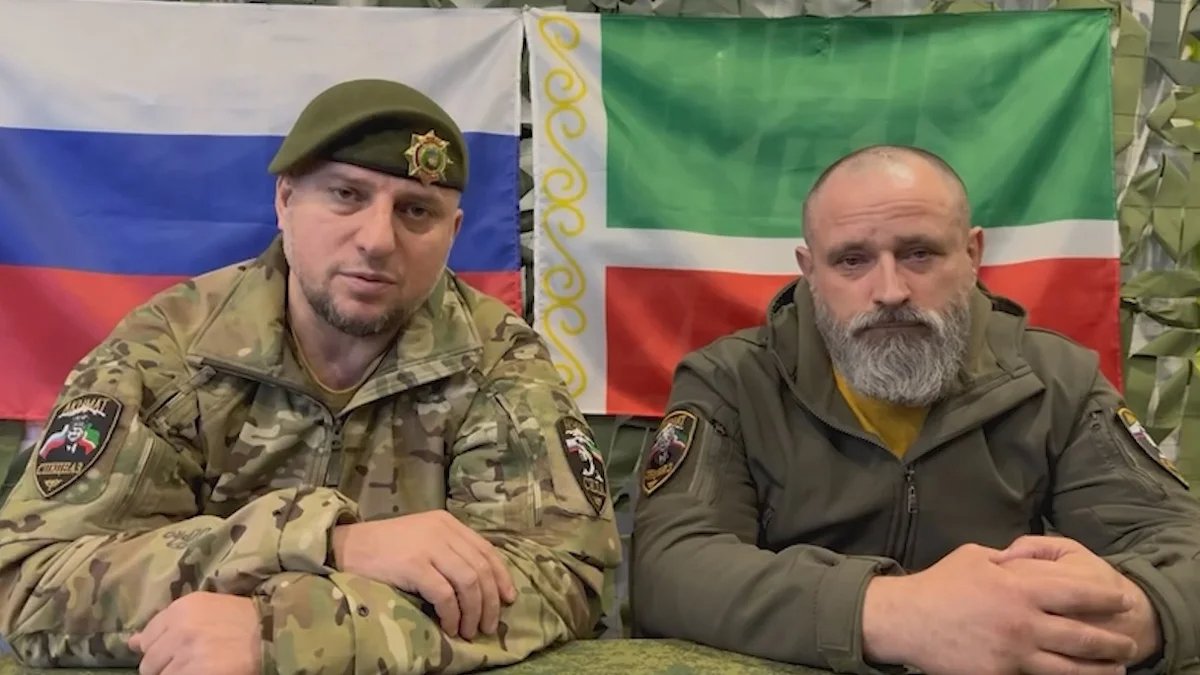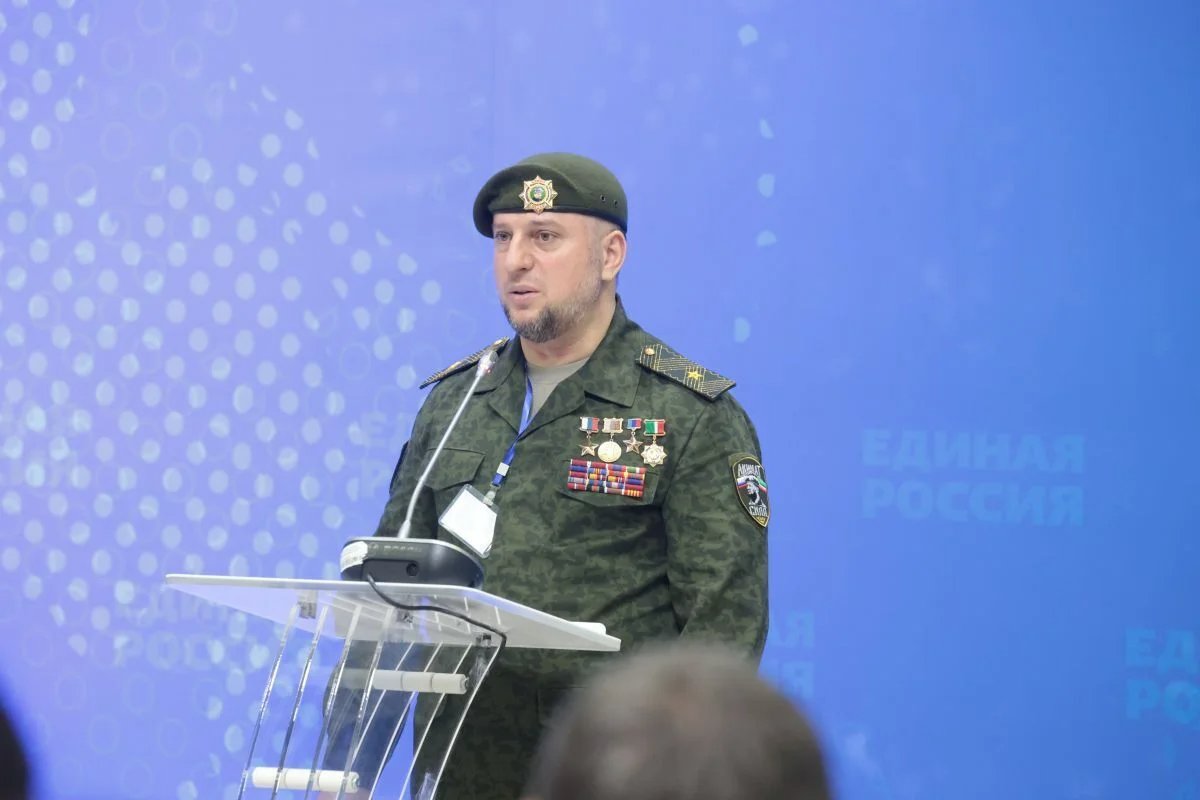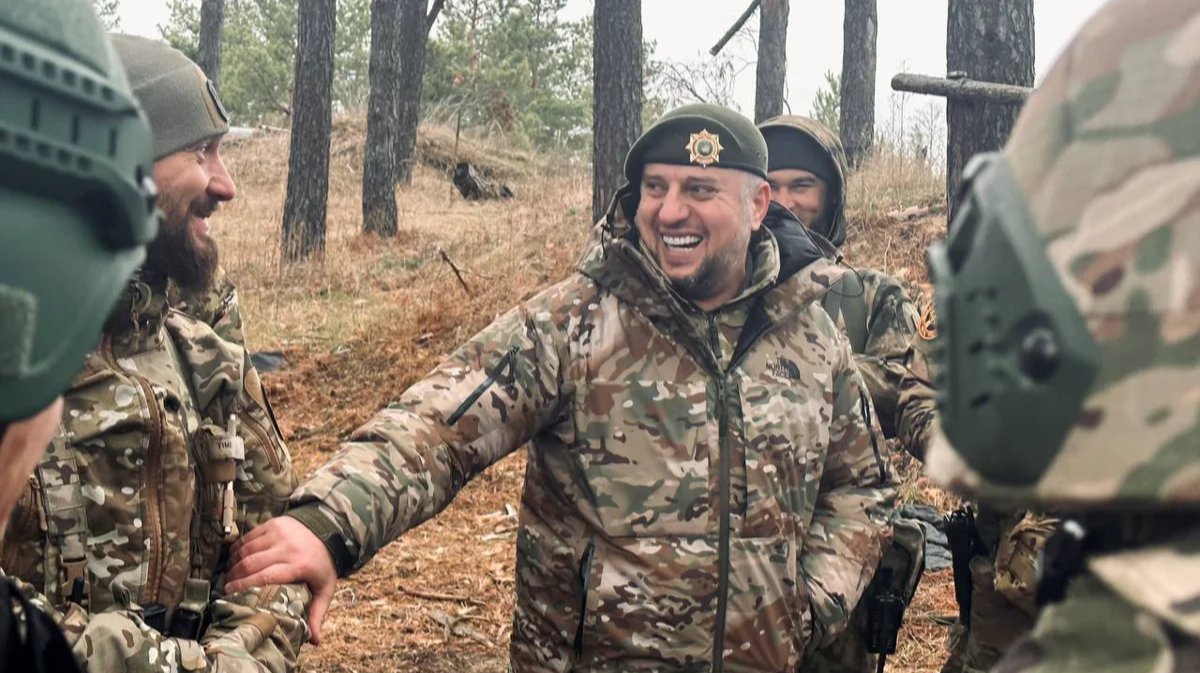As Chechnya braces itself for a new autocrat amid Ramzan Kadyrov’s worsening health, Novaya Gazeta Europe continues its series of reports on how political forces are aligned in one of Russia’s most volatile regions.
The Kremlin has now spent months weighing up likely scenarios in the event of a change of power in Chechnya, considering who might replace Kadyrov in the top job. After taking a closer look at commander of the Akhmat battalion Apti Alaudinov — one of Kadyrov’s likely successors — and describing how Putin’s war in Ukraine and Kadyrov’s desire to preserve his personal army at all costs have been key to his rise, in this fourth instalment, Novaya Europe details how thousands of former Wagner mercenaries joined the Akhmat special forces and why Alaudinov has dubbed the Akhmat battalion “the army of Jesus”.
Purges and acquisitions
On 5 April, Kadyrov announced that 3,000 former Wagner mercenaries would be taken under the wing of the Akhmat special forces, headed by Apti Alaudinov. The news initially provoked anger among Russia’s so-called “pro-war patriots”, but there was actually nothing new or unusual about Wagner mercenaries joining Akhmat, a supposedly Chechen mercenary force that in fact is just 15% Chechen.
Indeed, the process had even begun before Wagner chief Yevgeny Prigozhin was killed alongside the entire Wagner leadership in a plane crash in August, after which the process inevitably intensified.
While in October Kadyrov announced that 170 Wagner mercenaries had joined Akhmat, Alaudinov presented the information a little differently, announcing the creation of a new detachment consisting entirely of Wagner fighters within the force.
In an interview with Russian propaganda outlet RT, Alaudinov explained that to get the Wagner fighters, he had allowed them to “maintain their structure” as well as their “approach to battle” so as “not to fix what isn’t broken”, something that is unheard of from a strictly hierarchical, military point of view.

Apti Alaudinov with former Wagner commander Alexander Kuznetsov, also known as Ratibor. Photo: Ramzan Kadyrov / Telegram
A formation of up to 3,000 former Wagner fighters is to report exclusively to former Wagner commander Alexander Kuznetsov, also known as Ratibor, rather than to Alaudinov himself.
As a result, Akhmat now has a detachment the size of a regiment, which retains its identity and organisational principles in full and enjoys almost complete autonomy from Akhmat’s own nominal leadership. Kadyrov has even promised to take care of financing and supplying the detachment, while Alaudinov, who was recently appointed to a position at the Defence Ministry in Moscow, has pledged to shield it from ministerial interference.
It made perfect sense for Kadyrov to agree to those conditions. After Putin’s victorious march on Kyiv in February 2022 turned out to be anything but, the Chechen head resolved to preserve his own armed units by any means necessary, and was even prepared to pay other mercenaries to fight rather than sacrificing his own forces, all of whom are personally loyal to Kadyrov.
The acquiescence of the Defence Ministry is also understandable; When Prigozhin died, the Wagner Group was a loose cannon capable of both attracting new members and exerting power as a force of several thousand armed and dangerous mercenaries. On the one hand, they were a valuable asset, on the other, a ticking time bomb waiting to go off. The Russian authorities were willing to do whatever it took to rein in the Wagner beast.
But how did it benefit Alaudinov to take on new fighters on such unfavourable terms, especially given that the former Wagner mercenaries have far more military experience than the Akhmat rank and file?
Ratibor, who leads the Wagner detachment, graduated from an elite military academy in St. Petersburg, and fought in the Second Chechen War and multiple other conflict zones. Alaudinov, by contrast, had worked all his adult life in law enforcement agencies and at the end of his service, by chance, found himself on the front line of a war as the commander of a ragtag army of soldiers.
In Alaudinov’s place, any other unit commander would have done everything in their power to get rid of a competitor like Ratibor. But instead, Alaudinov personally finagled the most favourable conditions possible for the Wagner mercenaries from the Defence Ministry bigwigs. He seemed to understand perfectly that his strengths lay elsewhere.
Preacher, not a fighter
When he went to the front to curry favour with Kadyrov, Alaudinov could have had no idea that the Chechen head’s terminal illness and the war in Ukraine would soon open up previously unimaginable career prospects. Back then, his only thought was how to survive as commander of a Chechen volunteer detachment with barely a Chechen to its name — practically all the Chechen volunteers who went to the front in March 2022 had returned to Chechnya by July, and had no desire to return to the trenches.
New Chechen volunteers had dried up by May, and the new blood that came to the Akhmat detachment via the recruiting centre in the town of Gudermes was a mix of all possible ages and backgrounds. Like Alaudinov, some of these volunteers had no military experience, whereas others had served in every flashpoint of the recent era, including in Chechnya itself.
To exert his authority over such a ragtag crew, Alaudinov chose a religious, yet surprisingly inclusive, approach — essentially unifying ethnic Russians and peoples of the Caucasus as “brothers” under one God and one leader.
“I praise the Almighty that I live in Russia, and that Vladimir Putin is the Russian leader, because he is a real man who has refused to accept these so-called European, but, in actual fact, satanic values being imposed on the whole world,” Alaudinov preached on Telegram in October 2022, calling the Akhmat forces and all the soldiers fighting on Russia’s side in Ukraine “the Army of Jesus”.
While Chechen officials made no comment on Akhmat’s “rebranding”, the seemingly nonsensical message went down quite well with pro-war Russian patriots. Alaudinov’s oratory skills also played a significant part in his relaunch of the force. In one clip online, he explains very graphically to his audience what all the Abrahamic religions have in common.
“First, God sent the Torah through the prophet Moses, to prepare us for later scripture. The Torah is like a rotary phone. Then God sent a second prophet, Jesus, to mankind, and he brought a supplement to the Torah — the Bible. That’s a GSM phone. Then 600 years later, God sent us the Prophet Muhammad and the Quran. That’s a smartphone. The Torah, the Bible and the Quran are three different ways of getting in touch with the Almighty. Everyone’s calling the same number…”

Apti Alaudinov. Photo: er.ru
While seemingly ridiculous, his choice of rhetoric is no accident. Alaudinov’s political science degree from Moscow State University appears to have been more useful than any military skills, allowing him to articulate the rationale behind a war the goals and meaning of which remain incomprehensible.
Gifted as he may be as an ideas and management man, Alaudinov made a sober assessment of his military capabilities and, realising that he had little to offer as a combat commander, he chose to delegate that to professionals. The Wagner recruitment model was tried and tested by Alaudinov back in 2022, long before the Defence Ministry handed fully-fledged, cohesive, largely autonomous combat teams to Akhmat.
Kadyrov remains the principal investor in the business project that is Akhmat, even if he doesn’t have a controlling stake in it. Nevertheless, the granting of broad autonomy to the detachment has made Akhmat the most combat-ready of all the forces associated with Kadyrov. And even though the connection to the Chechen dictator may deter other Wagner fighters and Russian servicemen from joining its ranks, the existence of Akhmat could yet prove to be an important asset for Chechnya’s future power holder, whoever that may ultimately be.

